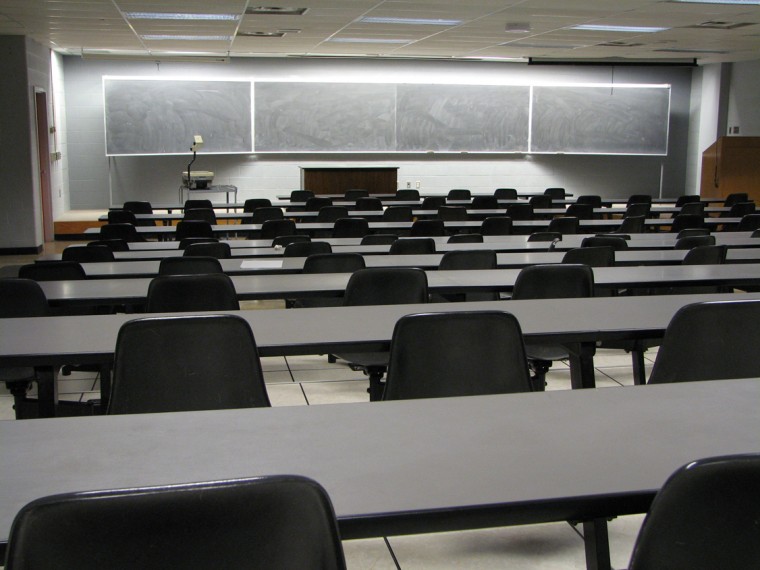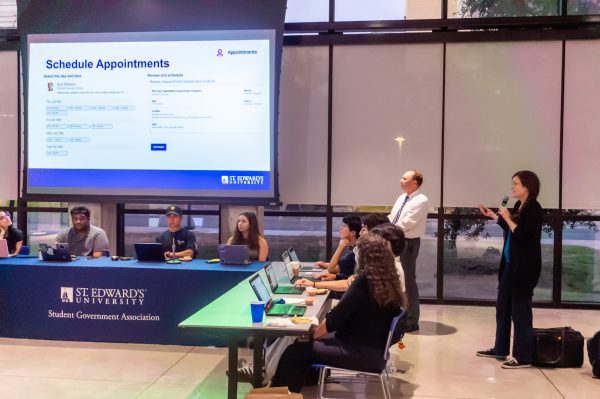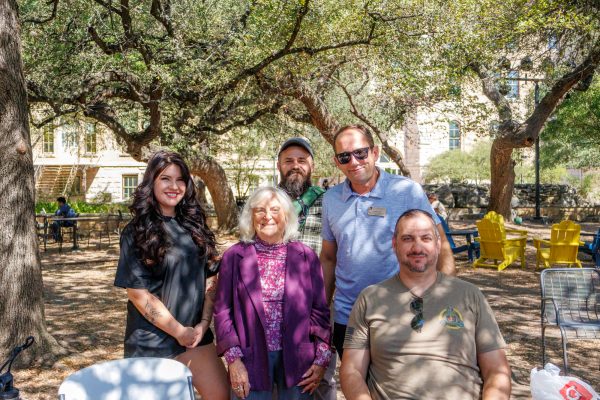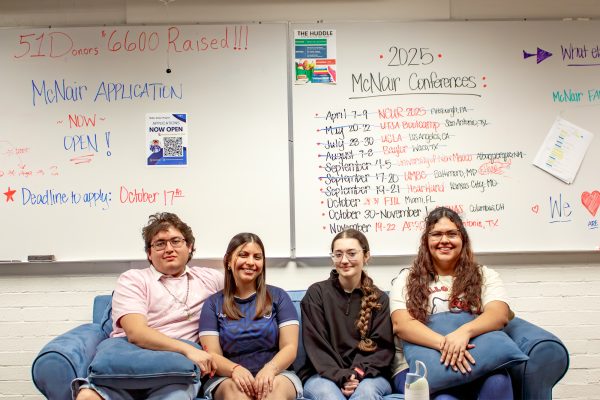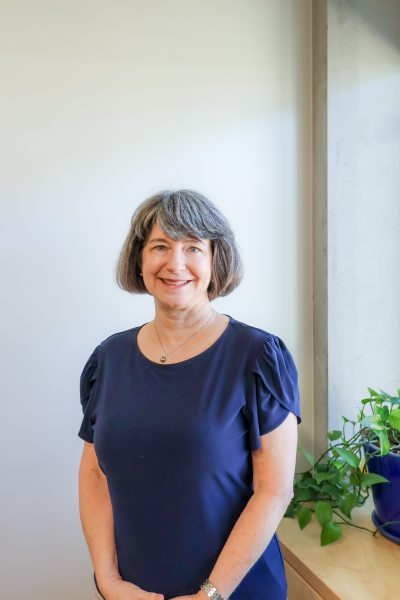Students look to teaching profession for jobs
The number of students applying for certification to teach after graduation has increased as observed by career counselor, John Lucas.
Due to the sluggish job market, St. Edward’s University students and graduates alike are exploring teaching positions rather than careers specific to their major.
John Lucas, career counselor for the Career Planning Office, said that his office has seen a significant increase in the number of students applying for certification.
“Typically, it might be a junior or senior coming upon graduation who hasn’t been in education and all of a sudden has an interest in teaching,” Lucas said. “We’ve also seen alumni coming back who are interested in getting certified to teach.”
Some education majors, like senior Dora Elia Dovalina, believe that allowing students who have not majored in education to teach can be detrimental to school performance.
“Personally, I do not think that people should be allowed to teach if they have not received the adequate training that is needed to teach in an elementary or secondary-grade level,” said Dovalina. “It takes more than just a few weeks or months to really become a good teacher and teach students the correct way, every teacher should have had a degree in their particular field and not just go into an alternative certification program and get certified.”
There are several methods individuals can use to become certified to teach. The first option is to go back to school and take the education courses required for certification.
“It can be a lengthy process for some students,” Lucas said.
The process is especially lengthy for students who major in subjects not traditionally taught in public schools.
Lucas recommended that students interested in pursuing an education related to teaching should contact the School of Education in order to obtain a contingency plan, which outlines what students have left to do in order to become certified.
Another route is the Masters of Arts in Education, a relatively new graduate program at St. Edward’s that is becoming increasingly popular. Lucas believes this method is very beneficial.
“The difference would be significant when it comes time to employment because in almost all school systems, the Master’s degree candidate starts at a higher pay rate level,” said Lucas. “It would be really wise for [students] to explore going into a Master’s of Arts Teaching Program.”
Another option some students have taken advantage of is applying to non-profit programs, such as Teach for America. Those accepted to Teach for America commit themselves to two years of teaching in inner-city schools and receive the standard starting salary of the area.
Senior Anna Unruh, a bioinformatics major, said she is in the final stage of the Teach for America application process.
“I actually want to go into medicine, but I’m also hoping eventually to teach medicine,” Unruh said. “I have also enjoyed doing student teaching here as a teaching assistant for general chemistry.”
Compared to traditional college-based methods of certification, some alternative certification programs may not offer the same in terms of preparation.
“There are some good alternative certification programs which offer an extensive program and others where the consumer should examine carefully to see if they equip them,” Leavell said. “Each alternative certification program would have to be looked at carefully to see if they really offer enough development to really be successful over the long term in education.”
Still, it is questionable whether the economy attracting more non-traditional teachers benefits the educational systems of the United States in general.
“I think that the economy has opened more people’s eyes to the possibility of teaching, and I think that’s a good thing,” Lucas said. “In the long run, I think it’s going to bring a richer pool of candidates to the teaching profession.”
Leavell is worried about the motivations of those suddenly interested in teaching in the down economy.
“If they are choosing education only to get a job or only to get a paycheck, that would be seen as a negative effect,” Leavell said. “At the same time, we are recruiting non-education people, maybe people who are pursuing careers that pay well in math and science, and we would love for them to reconsider and come into education.”
Still, Leavell said she would like students to look more closely at careers in education.
“There is a great demand for teachers with math, science, bilingual, English as a Second Language and special education preparation,” said Leavell. “Because of these general shortages, we would encourage students with interest and talents in these areas to consider pursuing education as a profession. Our department would be pleased to visit with any student who might want more information about the education profession.”
On the other hand, Dovalina added that the trend of non-education majors pursuing a career in teaching is unfair to those who spend their time in college majoring in education.
“I don’t think it’s fair for those [education majors] who went through school all four or five years,” said Dovalina. “People need to realize that teaching is not just like any job. It’s a large responsibility to make sure that we educate our students to the best of our abilities.”

